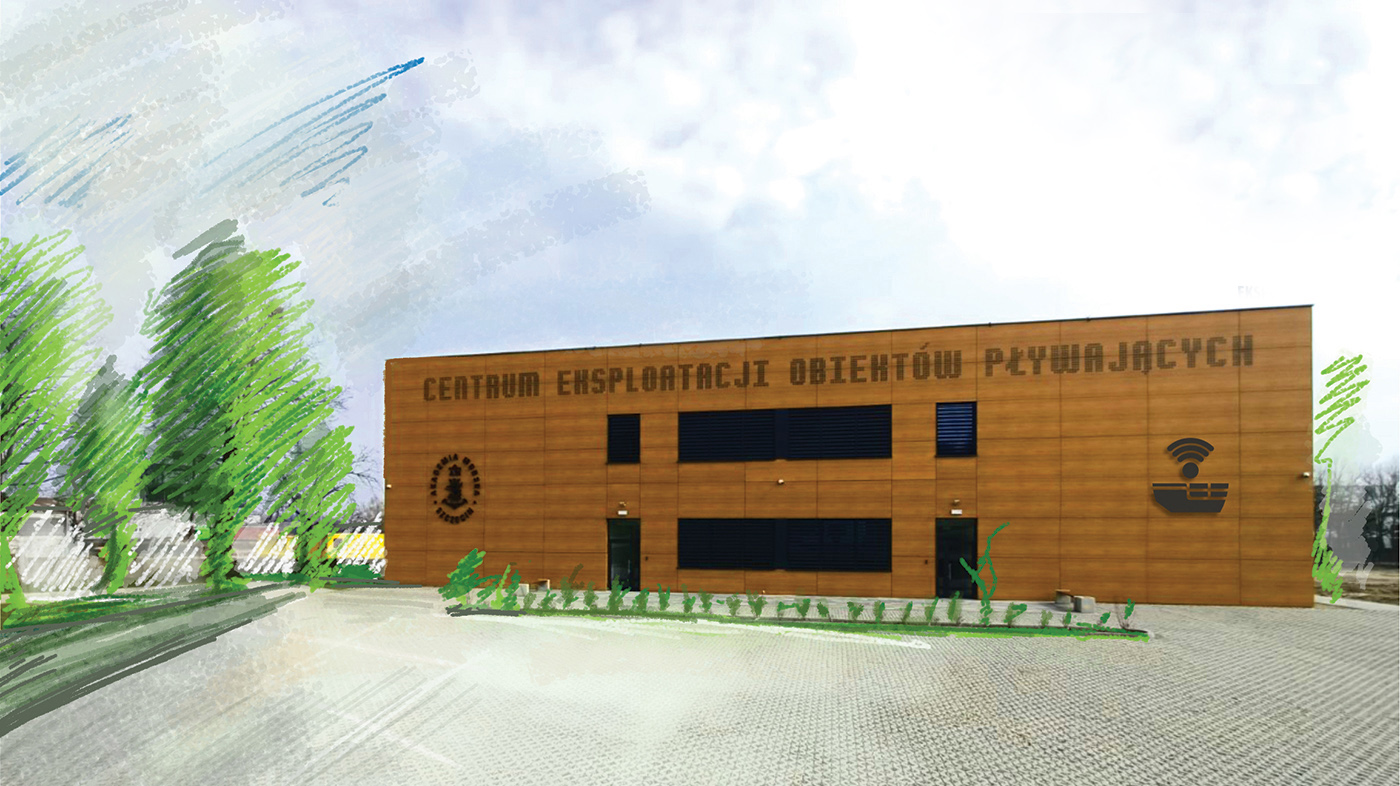The Maritime Research and Development Centre (MRDC) will be a modern facility at Dębogórska Street in Szczecin, with high-tech laboratories to set up in the near future.

Visualisation of the Maritime Research and Development Centre (MRDC) - view from Dębogórska Street
The Centre (Pol. Centrum Eksploatacji Obiektów Pływających - CEOP) will bring together various research areas in the maritime sector, including maritime traffic engineering, positioning systems, ship manoeuvring and satellite navigation.
Scale models of ships will be made in the Centre's labs - in other words - miniature ships - which will allow the researchers for observations to be made of how ships work in operation on water.
Construction works on the site has already been underway since spring 2019. The first stage - the most difficult - involved preparing the ground. The site is difficult to work with, located next to the wide river, so the biggest challenge was to reinforce the land properly, which is why the contractor, Prime Construction, first piled the ground enabling the foundations to be laid.
By the end of the year, the contractor managed to shell a building. The next works will focus on plastering, painting, the internal fit-out and furnishing of the building. The centre is expected to be ready for operation in autumn 2021.
What research will be developed at MRDC?
- The Centre will, above all, become an ultra-modern facility that will allow our research to reach a higher level - emphasizes the Rector, Wojciech Ślączka, Master Mariner, PhD, Eng., MUS Professor, who is in charge of the project.- We will be able to carry out advanced works here, including positioning of vessels, "working" in water: on the surface, sea and seabed, explains the Rector.
What does it mean? The dedicated laboratories that will be set up here will enable, for example, the programming of unmanned crafts exploring the seabed. We have to keep in mind that at high depths, GPS, for example, will not function.
We need to find different benchmarks at sea, in the laboratory we will be able to develop technologies and solutions that will later be tested and applied in harsh marine environments. The work at MRDC will be inherently linked to the IT sector and the technologies of the future.
- The Centre will also be used for innovative teaching. We will be introducing students to what the future of shipping and the offshore sector will look like," emphasises the Rector.
COFO is an important development not only for the University but also for the whole region and the city of Szczecin. For local enterprises and institutions, it will become an important research hub for the future development of the maritime sector.
 This is an important facility for West Pomerania," said Olgierd Geblewicz, the Marshal of West-Pomeranian when he signed the project grant. I am deeply convinced that the Maritime Research and Development Centre (MRDC) will strengthen the research infrastructure of our West Pomeranian universities - he stressed.
This is an important facility for West Pomerania," said Olgierd Geblewicz, the Marshal of West-Pomeranian when he signed the project grant. I am deeply convinced that the Maritime Research and Development Centre (MRDC) will strengthen the research infrastructure of our West Pomeranian universities - he stressed.The project is co-financed by the Regional Operational Programme for the West Pomerania Province.
The total cost of the project - PLN 29 421 939.95.
Level of co-financing - 74.84%.
EU co-financing - PLN 18 001 652,04.
Project completion date: 2021.

